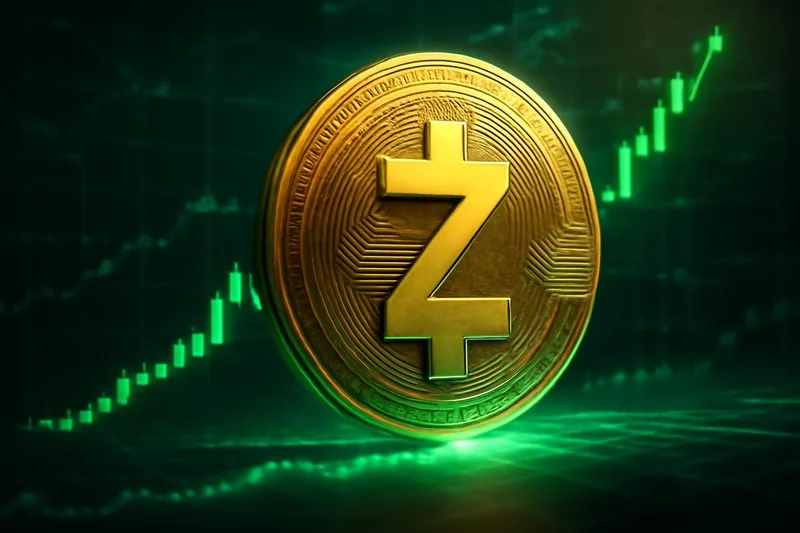Alright, let's talk Zcash. The privacy coin is making headlines with a 15x surge since September, while Bitcoin is, shall we say, underperforming. Cypherpunk Technologies, a treasury firm, just threw another $18 million into the ZEC pile. The question isn't whether Zcash is up; it's whether this rally is sustainable, or just another flash in the pan in the crypto wild west.
Cypherpunk Technologies (formerly Leap Therapeutics, a detail that raises an eyebrow right there) is all in on Zcash. They’ve now got 233,644.56 ZEC, representing 1.43% of the total supply. Their initial $50 million investment, combined with this new $18 million purchase, brings their average buy price to $291.04 per coin. With Zcash recently trading around $626, they're sitting on a paper profit of over $146 million.
But here’s the thing: Cypherpunk's stock (CYPH) is up 469% in a month. That kind of parabolic move screams "irrational exuberance." Is the market pricing in Zcash's potential, or just blindly following the hype? It's a classic correlation/causation problem. Are they smart, or just lucky?
The firm’s pivot to Zcash is backed by Winklevoss Capital. The Winklevoss twins are no strangers to crypto volatility, so their involvement lends some credibility. Still, even seasoned investors can get caught up in a frenzy. The appointment of Khing Oei and Will McEvoy (from Winklevoss Capital) to Cypherpunk's board also suggests a long-term commitment to this strategy. But what exactly is that strategy? Accumulate and hope?
Zcash’s appeal lies in its privacy features. Using zk-SNARKs, transactions can be shielded, making them difficult to trace. As Galaxy Digital Research Analyst Will Owens puts it, Zcash is seen by some as "encrypted Bitcoin," a return to cypherpunk principles.
But this privacy comes at a cost. Regulators are increasingly scrutinizing privacy coins due to anti-money-laundering (AML) concerns. Several exchanges have already delisted Zcash, and more could follow. The fundamental question: Can Zcash maintain its privacy features while complying with evolving regulations? If not, the entire investment thesis crumbles.
The article states ZEC is up 31% over the last week while Bitcoin is down 12%. A tidy divergence. But is this a flight to privacy, or just a rotation of capital? Bitcoin's recent dip below $90,000 (triggering over $1 billion in liquidations) suggests a broader market correction, and altcoins like Zcash often experience amplified volatility in both directions.
And this is the part of the report that I find genuinely puzzling: Why Zcash, specifically? Monero (XMR) is another well-known privacy coin. What specific factors led Cypherpunk to bet so heavily on Zcash over its competitors? The data is conspicuously silent on this point.

One argument is that Bitcoin's increasing mainstream adoption is driving some users towards privacy coins. The launch of Bitcoin ETFs, while legitimizing the asset class, also makes Bitcoin transactions more transparent. (The irony is palpable, isn't it?) The move to Zcash, then, could be seen as a rejection of this "financialization" of Bitcoin.
Comparing Zcash to Dogecoin is like comparing a complex algorithm to a meme. One article rightly points out that Dogecoin's infinite supply makes it difficult for its price to compound over the long term. Zcash, with its fixed supply of 21 million coins, has a built-in scarcity that Dogecoin lacks.
However, Zcash's "scarcity plus industrial-grade privacy" comes with "real legal questions," as that article notes. It's a high-risk, high-reward proposition. Dogecoin, on the other hand, relies on hype and sentiment. While that can lead to short-term gains, it's hardly a reliable investment strategy.
Turning $5,000 into $1 million requires a 200x return. For Dogecoin, that would mean a market cap exceeding $5.2 trillion. For Zcash, it's more plausible, but still a long shot. The point is not to expect millions, but to understand the underlying drivers of value.
The core question remains: Is the demand for privacy strong enough to overcome the regulatory hurdles and justify Zcash's current valuation? The recent surge suggests there's significant interest, but whether that interest translates into sustained demand is far from certain. The Zcash price has eclipsed $700 multiple times this month, but has remained volatile.
The thing is, the 15x surge may be impressive, but ZEC remains far from its all-time high of $3,191 set in 2016. Remember the hype around initial coin offerings? Many promised the moon, but few delivered. Zcash needs to prove it's more than just another overhyped crypto project.
The data suggests a speculative surge fueled by privacy concerns and institutional interest. But regulatory risks and market volatility remain significant threats. Investors should proceed with caution, and remember that past performance is no guarantee of future returns. (A cliché, I know, but clichés exist for a reason.)
Zcash's surge is a compelling narrative, but one that requires a healthy dose of skepticism. It's not a guaranteed path to riches; it's a calculated bet on the future of privacy in a world of increasing surveillance. And right now, the odds are still too long for my taste.